Canadian Design terms from HGTV
Lars
9 years ago
Featured Answer
Sort by:Oldest
Comments (44)
Fun2BHere
9 years agoRelated Professionals
East Hanover Interior Designers & Decorators · Little Egg Harbor Twp Interior Designers & Decorators · Washington Interior Designers & Decorators · Fort Wayne Furniture & Accessories · Manhattan Furniture & Accessories · Potomac Furniture & Accessories · Fair Lawn Furniture & Accessories · Nixa Furniture & Accessories · Port Chester Furniture & Accessories · Temple Terrace Furniture & Accessories · Tucker Furniture & Accessories · Maywood Custom Artists · Wasco Lighting · Whittier Lighting · St. Louis Window Treatmentsmarcolo
9 years agoJackie Kennedy
9 years agoainelane
9 years agoLars
9 years agoxc60
9 years agoxc60
9 years agomitchdesj
9 years agorobo (z6a)
9 years agomarcolo
9 years agoteacats
9 years agoedie_thiel
9 years agoontariomom
9 years agoGooster
9 years agochibimimi
9 years agocyn427 (z. 7, N. VA)
9 years agoblfenton
9 years agorobo (z6a)
9 years agoOlychick
9 years agosochi
9 years agoxc60
9 years agoLars
9 years agomarcolo
9 years agoBunny
9 years agosochi
9 years agoclax66
9 years agodebrak2008
9 years agoflowerpwr45
9 years agoLynnNM
9 years agosochi
9 years agorobo (z6a)
9 years agoflowerpwr45
9 years agorobo (z6a)
9 years agodebrak2008
9 years agodebrak2008
9 years agorobo (z6a)
9 years agocarriem25
9 years agobeckysharp Reinstate SW Unconditionally
9 years agodebrak2008
9 years agorobo (z6a)
9 years agoemmarene9
9 years agorobo (z6a)
9 years agomissingtheobvious
9 years ago
Related Stories
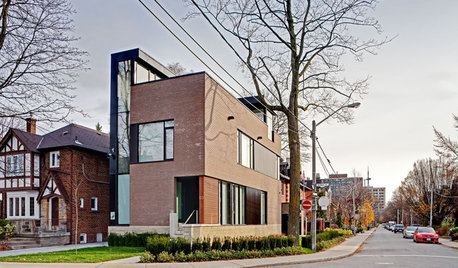
EXTERIORSModern Canadian Homes Showcase Clever Entryways
From hidden doors to sculptural steps, the entrances to these Ontario, Canada, dwellings make homecoming a special pleasure
Full Story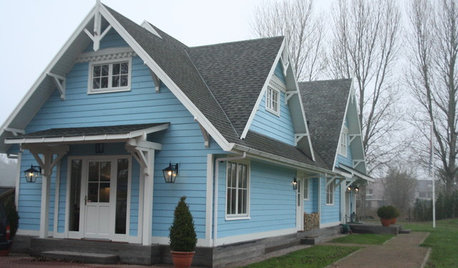
HOUZZ TOURSMy Houzz: Canadian Cottage in the Netherlands
Visit a thoughtfully-designed Arts and Crafts home with Canadian craftsmanship and nautical touches
Full Story
PATIO OF THE WEEKWater and Fire Mingle in a Canadian Front Yard
If the illuminated moat winding through this Ontario patio doesn't dazzle you, the 8-foot-wide fireplace will
Full Story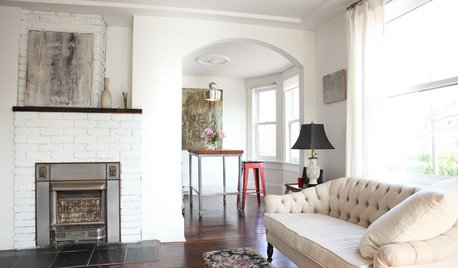
ECLECTIC HOMESMy Houzz: Community Matters for a Canadian Café and Home
Celebrating food, play and life, this formerly run-down corner building is now a neighborhood treasure and a family's haven
Full Story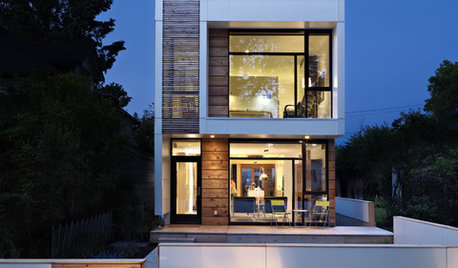
HOUZZ TOURSHouzz Tour: Wide-Open Views on a Narrow Canadian Lot
Expansive glass walls facing the street create openness, sun-filled rooms and closer relations with the neighbors
Full Story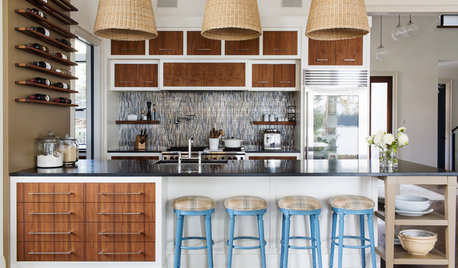
CONTEMPORARY HOMESHouzz Tour: Contemporary Canadian Lake House Warms and Welcomes
A northern Ontario home accommodates parties of 100 but is cozy enough for two
Full Story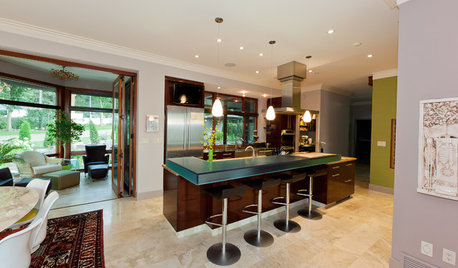
HOUZZ TOURSHouzz Tour: Open, Airy Canadian Bauhaus Home
Built for entertaining and maximizing natural light, an Edmonton home incorporates sunrooms, screens and easy access to the outdoors
Full Story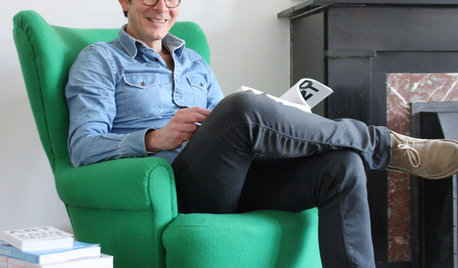
DECORATING GUIDES12 Design Tips From Guy-Friendly Spaces
Man up with these ideas from dudes who've navigated the decorating process with style and gusto
Full Story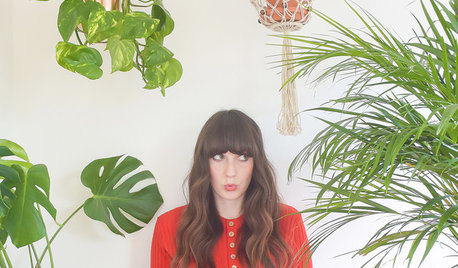
DECORATING GUIDESWorld of Design: Decorating Ideas From 10 Renters Around the Globe
Even if you don’t own your home, you can live beautifully. Browse these ideas from international tenants who’ve made their spaces special
Full Story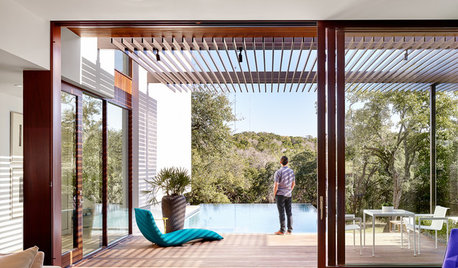
MODERN HOMESHouzz Tour: Design Lessons From a Deluxe Spec House
This luxurious Austin home was built on spec, but you'd probably never know it if we didn't tell you. Discover 10 reasons why
Full StoryMore Discussions






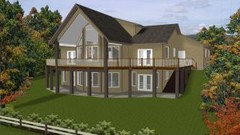







LucyStar1